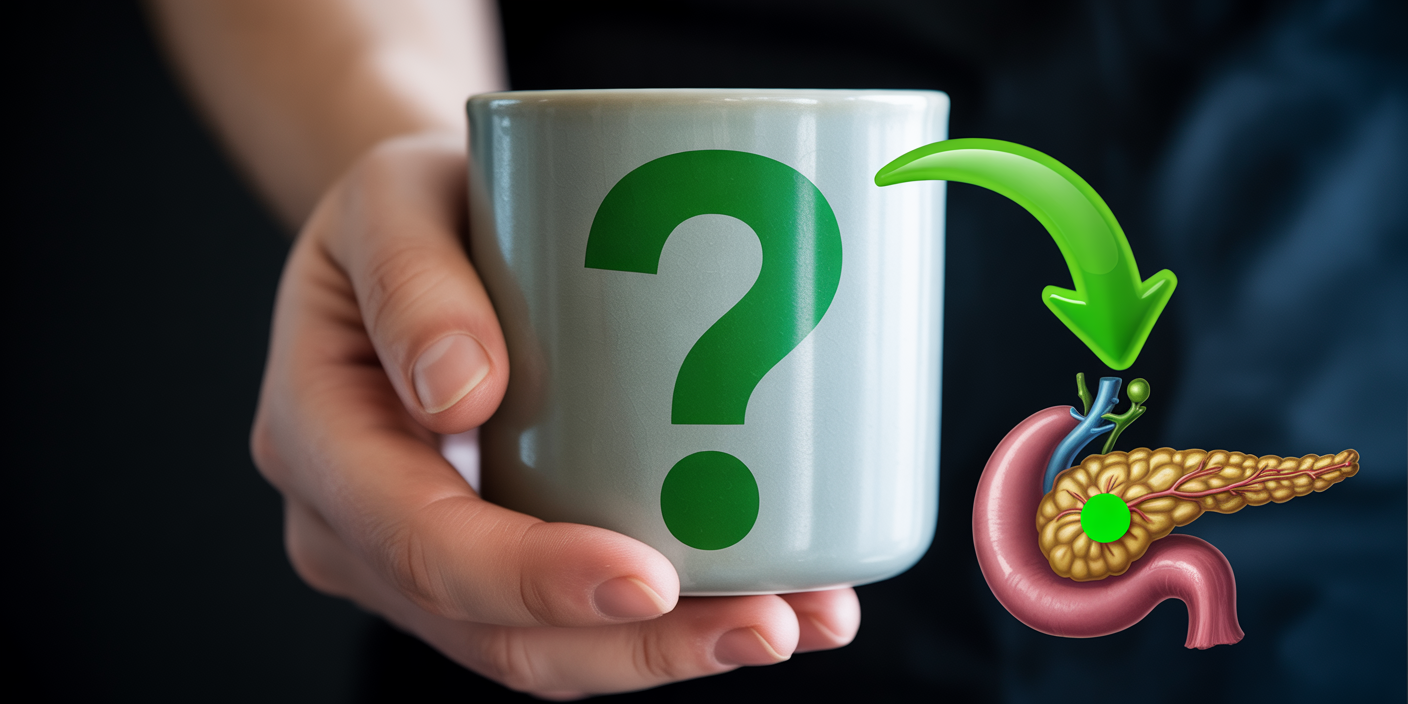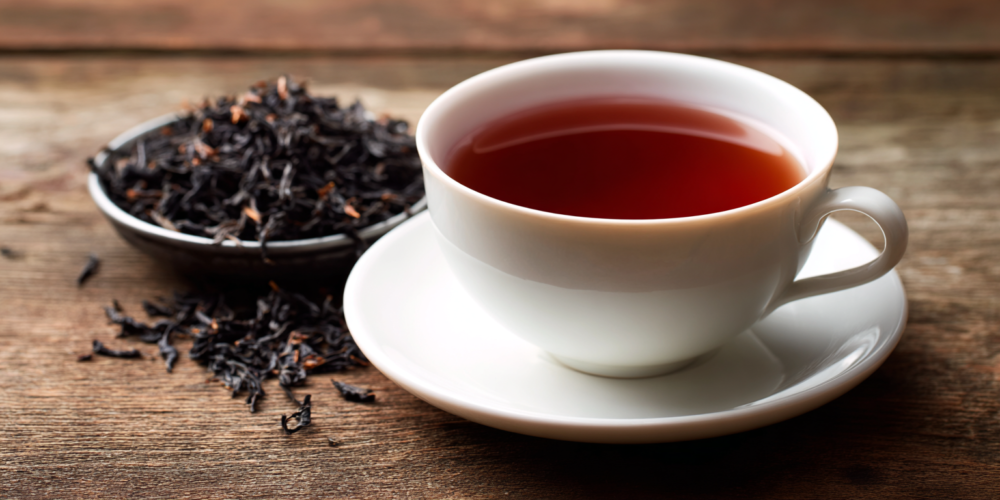
Did you know that a simple cup of black tea every day could be a game-changer for your health? It’s not just about adding years to your life, but also about adding life to your years. Recent findings suggest that this common beverage has a hidden superpower: protecting your pancreas and helping to keep your blood sugar levels in check. But it’s not as simple as just drinking it; understanding how to prepare and use it is key to unlocking its full medicinal potential.
In a world where pharmaceutical solutions are readily available for many ailments, it’s easy to overlook the powerful remedies hiding in our own kitchens. Today, we’re talking about black tea, a drink that can do wonders for combating not only type 2 diabetes but also other serious diseases that contribute to death and disability. (Based on the knowledge of Dr. RN Veller)
Understanding Your Pancreas and Blood Sugar

Metabolic diseases like diabetes affect millions worldwide. This high number is often linked to poor diet, stress, genetics, and issues with our pancreas. While we often focus on protecting our liver, heart, or kidneys, the pancreas, a vital gland, is frequently overlooked. The pancreas has two main jobs: releasing enzymes into our intestines to help us absorb nutrients, and releasing hormones like insulin into our bloodstream to control blood sugar levels.
Insulin is a bit of a double-edged sword. On one hand, it lowers circulating blood sugar, keeping it within normal ranges. On the other hand, when blood sugar and insulin levels get too high, it can lead to negative side effects. Overworking the pancreas, even if you’re not diabetic, can cause weight gain, slow down your metabolism, promote visceral fat accumulation, contribute to obesity, and trigger other metabolic problems. It can even lead to skin changes and increased inflammation throughout the body. That’s why it’s so important to remember our pancreas and actively support it with natural remedies daily.
The Medicinal Magic of Black Tea

Did you know that tea is the second most consumed beverage globally, right after water? And guess what? About 90% of the tea we drink is black tea, with green tea making up about 10%, and oolong and others filling out the rest. For thousands of years, ancient Chinese civilizations discovered that by fermenting green tea leaves, they created black tea. This process changes the chemical composition, making it different from green tea.
Both green and black teas contain polyphenols, which are natural plant compounds packed with antioxidant and anti-inflammatory properties. However, a recent study involving 50 countries highlighted that black tea possesses specific active compounds that can help fight type 2 diabetes, high blood pressure, heart attacks, and reduce the risk of strokes, lung problems, and cholesterol issues. It also contains caffeine, though in lower doses than espresso, acting as a gentle stimulant for our nervous system. Regular consumption can improve brain function, potentially reducing the risk of memory and concentration problems, and even dementia in the long run.
For coffee lovers who are sensitive to caffeine’s side effects, black tea is a fantastic alternative. It also contains theanine, an amino acid that helps produce GABA in our brain. GABA is a calming neurotransmitter that combats stress and anxiety. This combination of moderate caffeine and theanine leads to a state of alertness and focus without the jitters, tremors, or insomnia often associated with coffee.
Black Tea’s Impact on Blood Sugar and Insulin Sensitivity

One of the most exciting benefits of black tea relates to blood sugar control. The polyphenols in black tea have been shown to improve insulin sensitivity. What does this mean in simpler terms? For people with prediabetes, obesity, metabolic syndrome, or type 2 diabetes, insulin resistance is a common issue. This means insulin struggles to manage blood sugar levels effectively, forcing the pancreas to work harder and release more insulin. Over time, this can exhaust the pancreas and lead to the problems associated with high insulin levels.
Here’s the great news: the polyphenols in black tea directly address this. They improve how insulin works, reducing resistance. This means your pancreas doesn’t have to work as hard, and your body needs less insulin to keep blood sugar levels balanced. Furthermore, the active compounds in black tea can help repair and regenerate damaged pancreatic cells. This not only helps prevent and manage diabetes but also significantly reduces the risk of premature death.
How to Incorporate Black Tea into Your Routine

To reap the medicinal benefits of black tea, consistency is key. Aim to drink it daily. The ideal time to consume it is with or immediately after meals. Having a cup with breakfast and another with lunch can be very beneficial. Research shows that drinking tea after meals is particularly effective because it’s when blood sugar levels tend to spike, and the pancreas releases more insulin. Some compounds in black tea can also help reduce sugar absorption in the gut, making these mealtime moments optimal.
While you can drink it at other times, be mindful of the caffeine content. If you’re sensitive, drinking it too close to bedtime might cause sleep disturbances. Although black tea also contains relaxing compounds that can counteract caffeine’s effects, it also has a diuretic effect, meaning you might need to get up more during the night. Therefore, breakfast and lunch are generally the best times.
Recommended Dosage:
For medicinal benefits, try to have at least one to two cups per day. If you’re only having one cup, make it with your largest meal of the day, which for most people is lunch.
Preparation:
- Use one black tea bag or about 2 grams (roughly one teaspoon) of loose black tea leaves.
- Add 200 ml of hot water.
- Let it steep for at least 10 minutes to ensure maximum extraction of active compounds.
- You can drink it warm or cool. Ideally, consume it without any added sweeteners like sugar, honey, or artificial sweeteners. However, you can enhance its flavor and benefits with natural additions like mint, cocoa powder, cinnamon, ginger, or a splash of lemon.
Give it a try for four weeks and notice how you feel! Share your experience in the comments below.
Beyond Blood Sugar: Other Health Perks
Black tea isn’t just good for your pancreas and blood sugar. Its antioxidants combat free radicals – unstable molecules that damage cells and contribute to aging and chronic diseases like cancer, heart disease, and Parkinson’s. By fighting these free radicals, black tea helps reduce the risk of premature aging and chronic illnesses.
Studies suggest black tea may help protect against cancers of the liver, prostate, skin, lungs, and colon. It also contributes to brain health, potentially reducing the risk of dementia and improving cognitive function.
Precautions and Considerations
While generally safe when consumed in recommended amounts, there are a few things to keep in mind:
- Kidney Stones: Black tea contains oxalates, which can contribute to kidney stone formation in susceptible individuals. If you have a history of kidney stones, consult your doctor.
- Temperature: Avoid drinking tea at excessively high temperatures (above 80°C or 140°F). Very hot beverages can chronically damage internal tissues, increasing the risk of esophageal cancer. Ensure the tea is warm, not scalding.
- Caffeine Sensitivity: If you are sensitive to caffeine, be mindful of your intake, especially later in the day.
It’s important to remember that while black tea offers significant health benefits, it should complement, not replace, any medical treatments prescribed by your doctor. Always discuss incorporating new remedies with your healthcare provider to create a holistic health plan that combines traditional and natural approaches for your well-being.
Source: Dr. RN Veller

